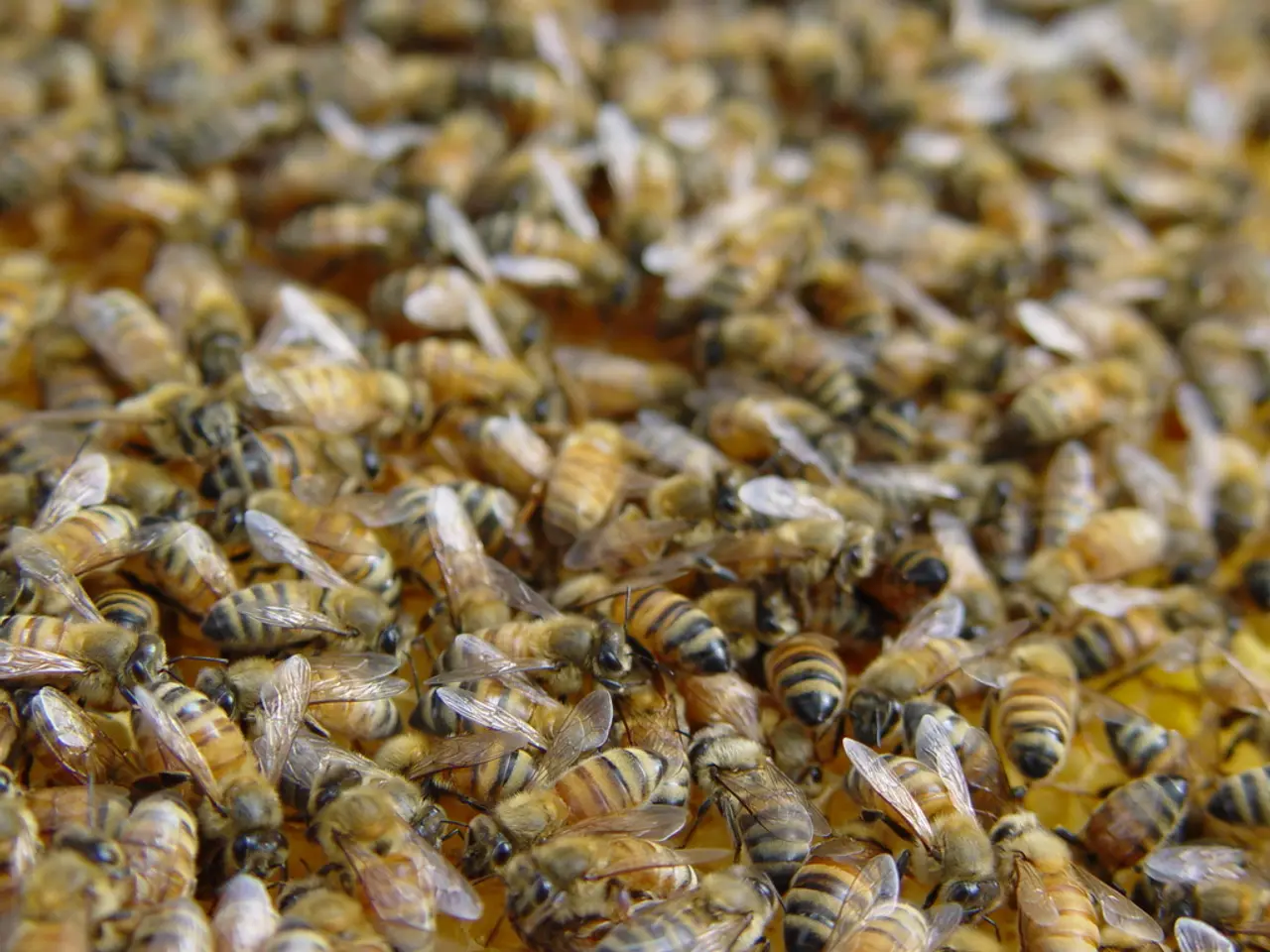Bumblebee Sensory Abilities Under Threat: Study Reveals 80% Loss Due to Intense Heat
In a concerning development, a study conducted by researchers from the University of Würzburg, Germany, has revealed that heat waves could be impairing the sense of smell in bumblebees, which are essential pollinators for many crops. This decline in olfactory ability could lead to less efficient foraging and a decrease in food availability for the colony, potentially causing a cascading effect on the survival of entire colonies.
Bumblebees play a crucial role in pollination, which is vital for plant reproduction and crop yields. Since they pollinate about one-third of the global food supply, their decline could have a direct impact on agriculture. If bumblebees cannot adapt to rising temperatures, the stability of food supplies could be at risk.
The study, which involved 190 bumblebees of two species - Bombus terrestris and Bombus pascuorum - simulated heat waves to examine their impact on bumblebees' ability to smell. After heat exposure, the bees' antennae could detect these scents up to 80% less effectively. No quick recovery from heat exposure was observed in the bees' ability to smell.
The reduced ability to smell could lead to less efficient foraging and a decrease in food availability for the colony. If bees struggle to find food, it could result in reduced pollination and lower crop production. This disruption could have several consequences:
- Reduced pollination of crops: Many fruits, vegetables, and nuts depend on bumblebees and other pollinators for fruit set. Poor pollination leads to lower yields and compromised food supply.
- Decline in plant reproduction and biodiversity: Wild plants relying on bumblebee pollination would produce fewer seeds, reducing plant diversity and affecting ecosystems dependent on those plants.
- Cascading ecosystem effects: Since plants form the foundation of ecosystems, any decline in their reproduction can diminish food and habitat availability for other species, undermining ecosystem stability and services.
Heat waves can exacerbate the problem by impairing insect sensory functions and behaviours, as has been documented for other insects experiencing reduced mating frequency and activity under thermal stress. Although direct studies on bumblebees losing smell due to heat waves are limited, the known dependence of pollinators on olfactory signals suggests significant negative ecological and agricultural outcomes if this sensory loss becomes widespread.
The findings emphasize the need for action to protect pollinators from the effects of climate change. Further research is needed to understand how other species of bees and pollinators might be affected by heat waves. The inability of bees to pollinate could have deeper consequences for our environment and food supply.
In conclusion, continued sensory impairment in bumblebees from heat stress threatens their ability to sustain pollination, thereby risking food security and ecosystem health. The potential impact on food supply and ecosystems could be severe if bumblebees continue to lose their sense of smell due to heat waves.
- The decline in the sense of smell in bumblebees, due to heat waves, can lead to less efficient foraging and a decrease in food availability for their colony.
- This decrease in food availability could result in reduced pollination and lower crop production, potentially impacting one-third of the global food supply.
- If wild plants relying on bumblebee pollination produce fewer seeds, it could reduce plant diversity and affect ecosystems dependent on those plants.
- Heat waves can also impair other insects' sensory functions and behaviors, which could lead to reduced mating frequency and activity, affecting ecosystem stability and services.
- The inability of bees to pollinate could have deeper consequences for our environment and food supply, emphasizing the need for action to protect pollinators from the effects of climate change.
- Further research is required to understand how other species of bees and pollinators might be affected by heat waves, as the consequences for food security and ecosystem health could be severe if sensory loss becomes widespread.




